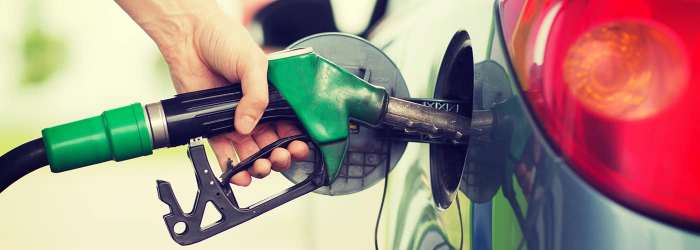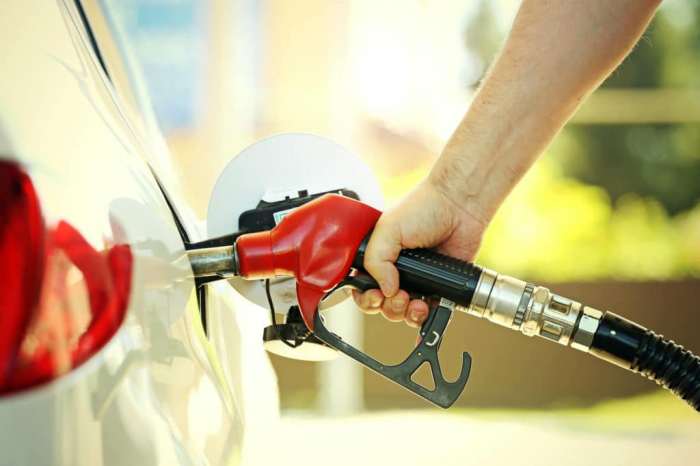Do volkswagens need premium gas – The debate over whether or not Volkswagens need premium gas has been going on for years. Some drivers swear by it, while others say it’s a waste of money. So, what’s the truth? In this article, we’ll take a closer look at the pros and cons of using premium gas in Volkswagens and help you decide if it’s right for your car.
We’ll start by discussing the different Volkswagen models and their recommended fuel types. Then, we’ll take a look at the potential benefits of using premium gas in Volkswagens, including how it can affect engine performance and efficiency. We’ll also compare the cost of premium gas to regular gas and calculate the potential cost savings or expenses of using premium gas in Volkswagens.
Vehicle Specifications
Volkswagen offers a wide range of models, each with specific fuel requirements. Understanding the recommended fuel type for your Volkswagen is crucial for optimal performance and longevity.
The following table provides a comprehensive overview of the fuel requirements for popular Volkswagen models:
Fuel Requirements
| Model | Recommended Fuel Type |
|---|---|
| Golf | Regular Unleaded |
| Jetta | Regular Unleaded |
| Tiguan | Premium Unleaded (91 Octane or Higher) |
| Atlas | Regular Unleaded |
| Arteon | Premium Unleaded (91 Octane or Higher) |
Premium Gas Benefits
Premium gas, also known as high-octane fuel, can offer several potential benefits for Volkswagen vehicles. It contains a higher concentration of octane, which resists knocking and allows for a higher compression ratio in the engine. This can lead to improved engine performance and efficiency.
Engine Performance
Using premium gas in Volkswagens can result in increased power and torque, especially in vehicles with turbocharged or high-performance engines. The higher octane rating allows the engine to run at higher compression ratios, which improves combustion and generates more power.
While Volkswagens generally don’t require premium gas, some high-performance models may benefit from it. Did you know that Volkswagen also has a hand in creating the iconic Bugatti? Discover the history behind Volkswagen and Bugatti to learn more about their connection.
Getting back to our initial topic, if you’re unsure whether your Volkswagen needs premium gas, it’s always best to consult your owner’s manual or a trusted mechanic.
Fuel Efficiency
While premium gas is generally more expensive than regular gas, it can potentially improve fuel efficiency in some Volkswagen models. The higher octane rating helps the engine burn fuel more efficiently, reducing the amount of fuel needed to achieve the same level of performance.
Cost Considerations

When deciding whether to use premium gas in your Volkswagen, it’s important to consider the potential cost implications. Premium gas typically costs more per gallon than regular gas.
Most Volkswagens don’t need premium gas, but there are a few exceptions. If you’re not sure whether your Volkswagen needs premium gas, check your owner’s manual. While you’re there, you might also be curious to know did volkswagen buy porsche . The answer may surprise you! Back to our original topic, if your Volkswagen does require premium gas, be sure to use it.
Using regular gas in a car that requires premium gas can damage the engine.
To determine the potential cost savings or expenses, you need to compare the fuel economy of your Volkswagen using premium gas versus regular gas. If the fuel economy improves significantly with premium gas, the higher cost per gallon may be offset by the increased miles per gallon.
Cost Comparison
- Calculate the cost per mile for both premium and regular gas.
- Consider the fuel economy of your Volkswagen with each type of gas.
- Multiply the cost per gallon by the fuel economy to get the cost per mile.
For example, if premium gas costs $4.00 per gallon and your Volkswagen gets 30 mpg with premium gas, the cost per mile would be $0.13. If regular gas costs $3.50 per gallon and your Volkswagen gets 25 mpg with regular gas, the cost per mile would be $0.14.
Most Volkswagens don’t require premium gas, but it’s always a good idea to check your owner’s manual to be sure. If you’re wondering whether Volkswagen Beetles take diesel, click here to find out. Regardless, using the correct fuel for your Volkswagen is important for maintaining its performance and longevity.
In this example, using premium gas would save you $0.01 per mile. Over time, this could lead to significant cost savings.
Manufacturer Recommendations

Volkswagen officially recommends using regular unleaded gasoline with an octane rating of 87 for most of its vehicles. However, some high-performance models, such as the Golf R and GTI, require premium fuel with an octane rating of 91 or higher.
Do Volkswagens need premium gas? It’s a question that has been debated for years. Some people say yes, while others say no. The truth is, it depends on the model of Volkswagen you have. If you’re not sure whether your Volkswagen needs premium gas, it’s always best to consult your owner’s manual.
Did Volkswagen buy Audi ? The answer is yes. Volkswagen acquired Audi in 1964. So, if you’re wondering whether your Volkswagen needs premium gas, be sure to check your owner’s manual or contact your local Volkswagen dealer.
Warranty Implications
Using premium gas in a Volkswagen that does not require it will not void the warranty. However, using regular gas in a vehicle that requires premium fuel may cause engine damage and void the warranty.
While it’s generally recommended to use premium gas in high-performance Volkswagens, regular gas is sufficient for most models. Interestingly, Volkswagen has a rich history beyond automobiles. Did you know they once manufactured tanks? Click here to learn more about Volkswagen’s fascinating past.
Returning to our topic, if you’re unsure about the fuel requirements for your Volkswagen, consult your owner’s manual or a qualified mechanic.
Real-World Experiences
Numerous Volkswagen owners have shared their experiences using both premium and regular gas in their vehicles. Their observations provide valuable insights into the real-world effects of fuel choice on performance, fuel economy, and engine longevity.
Performance
Many owners report that their Volkswagens exhibit improved acceleration and smoother engine operation when using premium gas. This is attributed to the higher octane rating of premium fuel, which resists detonation and allows for more efficient combustion.
Fuel Economy
While some owners claim to have experienced slightly better fuel economy with premium gas, others have found no significant difference. The impact of fuel choice on fuel economy is likely to vary depending on the specific Volkswagen model and driving conditions.
Engine Longevity, Do volkswagens need premium gas
Long-term studies have not definitively established a clear link between fuel choice and engine longevity in Volkswagens. However, some owners believe that using premium gas can help prevent carbon buildup and extend the life of their engines.
Environmental Impact
The use of premium gas in Volkswagens has implications for the environment, primarily related to emissions and greenhouse gases.
Emissions
Premium gas typically contains higher levels of detergents and additives compared to regular gas. These additives can help reduce engine deposits and improve combustion efficiency. As a result, using premium gas may lead to lower emissions of certain pollutants, such as hydrocarbons and carbon monoxide.
Greenhouse Gases
The production and use of premium gas contribute to greenhouse gas emissions. The extraction, refining, and transportation of crude oil, as well as the combustion of premium gas, release carbon dioxide and other greenhouse gases into the atmosphere.
However, it’s important to note that the environmental impact of premium gas is complex and depends on various factors, including the specific vehicle, driving conditions, and the overall fuel efficiency of the car.
Final Summary: Do Volkswagens Need Premium Gas
Ultimately, the decision of whether or not to use premium gas in your Volkswagen is a personal one. There are pros and cons to both sides of the argument, and the best decision for you will depend on your individual driving habits and budget.
However, by understanding the facts, you can make an informed decision that’s right for you and your car.